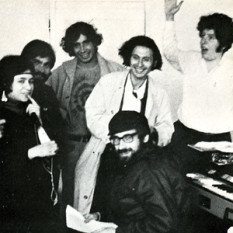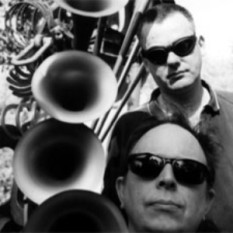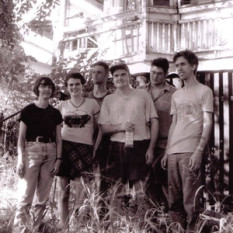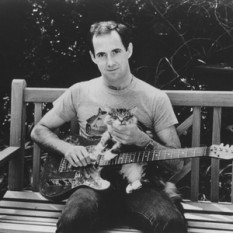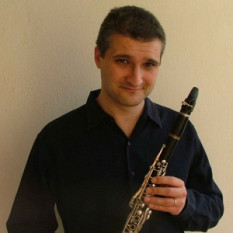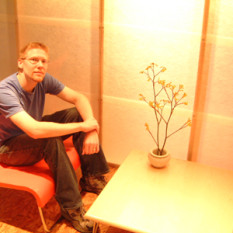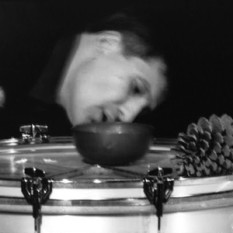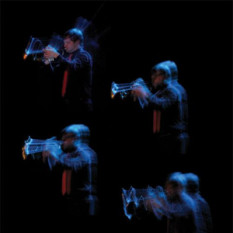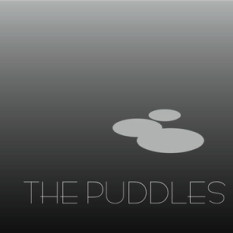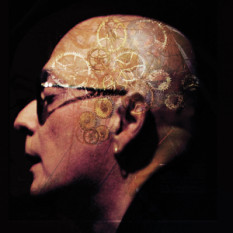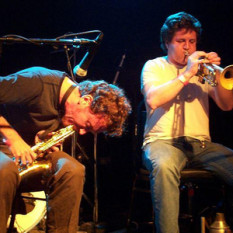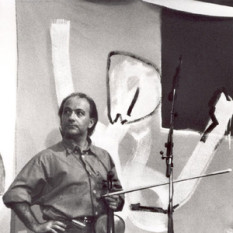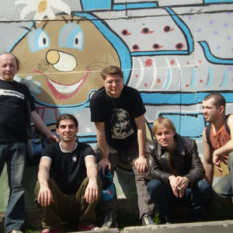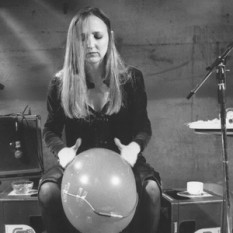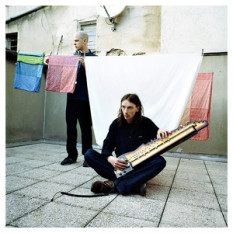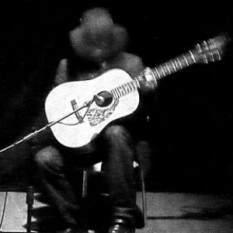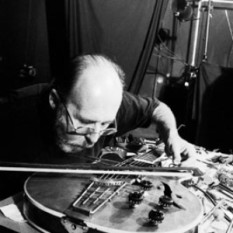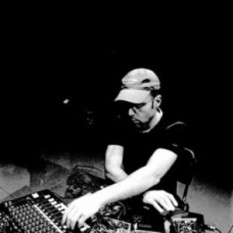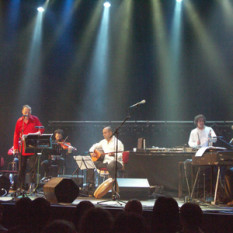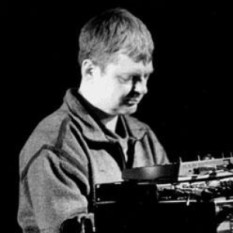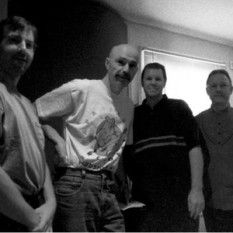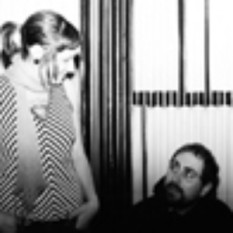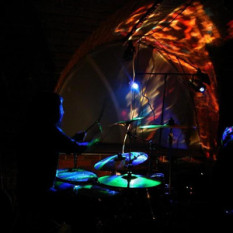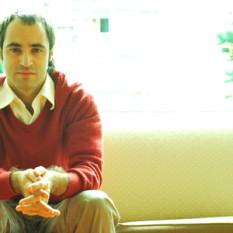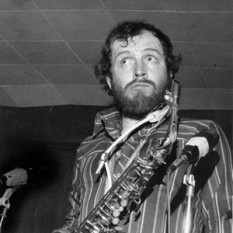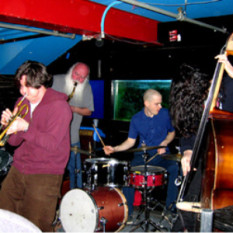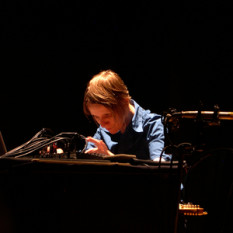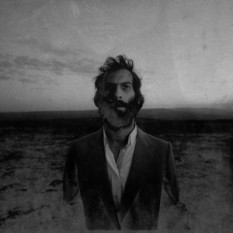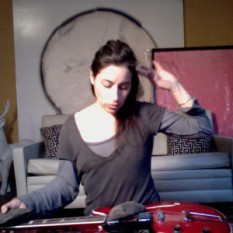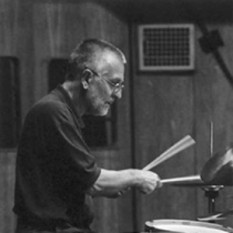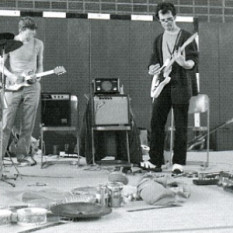Improv: short for 'free improvisation'. Although improvisation plays a part in most musical genres, free improvisation emerges as a distinct form in itself in the 1960s. Improv can be traced back to guitarist, Derek Bailey's early perfomances with the Joseph Holbrooke Trio ,with Gavin Bryars on Bass and Tony Oxley on drums (although Group Ongaku and AMM could lay a similar claim).
Initially playing post-bop jazz in the style of John Coltrane, Lennie Tristano and (incongruously) Bill Evans, the trio began to experiment with unusual time-signatures, eventually unhinging the rhythm section to the extent that no regular meter could be discerned, leaving a state of continual interplay between the instrumentalists. The group also moved away from chord-based improvisation, following and stretching the modal work of Miles Davis and Coltrane to breaking point.
Bailey would later join musicians such as John Stevens, Kenny Wheeler and Evan Parker in improvisational workshops based at The Little Theatre in London.
From these beginnings Improv has developed into a broad, multifaceted, international movement. Although the movement is marked by fierce aesthetic and ideological divisions (famous spats have featured Bailey and Evan Parker and more recently AMM's Eddie Prevost and Keith Rowe.) there are common threads:
-an emphasis on music as process, rather than as a finished product.
-a foregrounding of the dialogic relationships of musicians within a group.
-a tendency to replace traditional jazz / chamber instrumentation and orchestration with unusual combinations of instruments, often from diverse cultural spheres.
-the rejection of 'idiomatic' elements - even if paradoxically, improv is often easily identifiable (Eugene Chadbourne and John Zorn are notable exceptions to this rule – both frequently incorporate idiomatic elements in their work)
-atonality - reflecting a common ground with serial / note-row / twelve-tone composition
-an emphasis on timbre, texture and 'sound' over musical elements such as harmony and melody.
-a left-wing distrust of commodified musical forms.
-even though free improvisation can be seen as a form that demands an extremely high degree of technical ability, free improvisors tend to reject traditional ideas of musicianship. There is no apparent contradiction in forming groups made up of both virtuosos and total novices - it's the music that matters.
- a sense of humour (though there’s plenty of po-faced improv)!
The spirit of improv has also permeated other genres, spawning 'free folk' and 'free rock' in the late 1990s.
For more ideas read Derek Bailey's own book: 'Improvisation' or Ben Watson's excellent 'Derek Bailey and the Story of Free Improvisation. John Cage's 'Silence' collection of essays is also interesting - especially the opening section on noise. If you're really into polemic then Eddie Prevost's 'Minute Particulars' might be worth tracking down .

